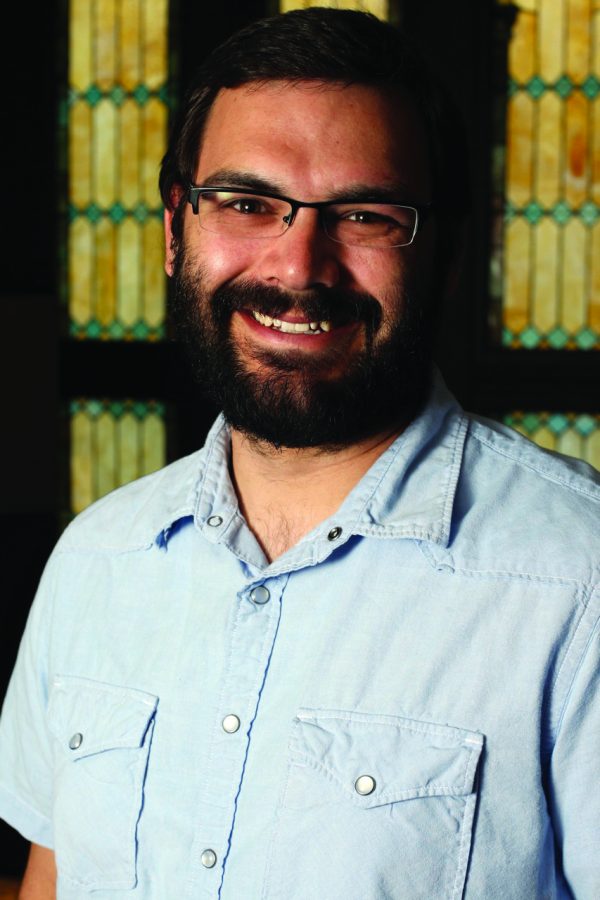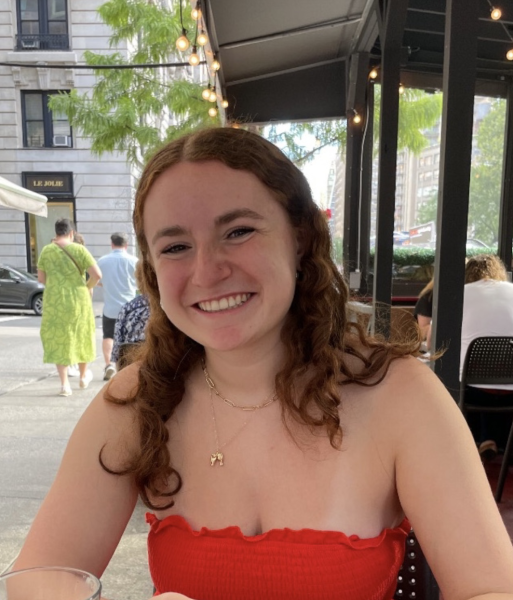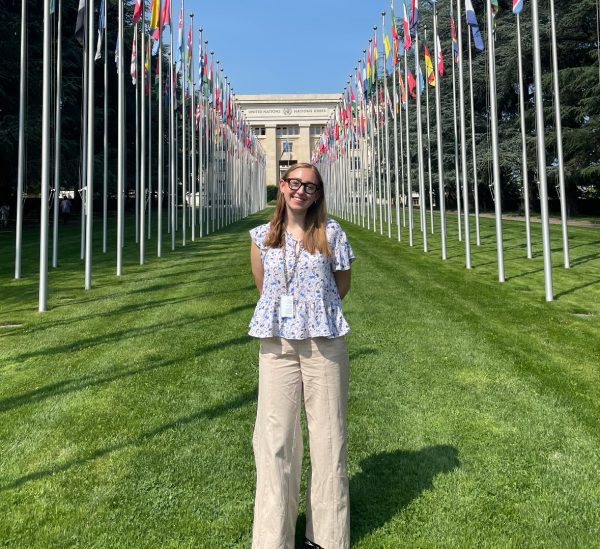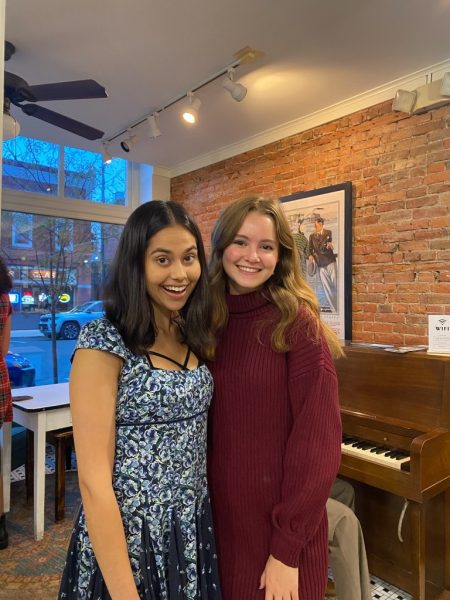Embracing Innovation: Cory Duclos
The W.M. Keck Center for Language Study, located in Lawrence Hall, is a hidden gem on campus. Its spaciousness and the aura of curiosity that lingers in its booths make it perhaps one of the most comfortable spaces to study, and the echoes of multiple languages can be heard all at once. Once a bustling space for language tutoring and the like prior to the pandemic, the Keck Center has diminished in human traffic but maintains its notability as the hub of cultural exchange and free expression of language through online programming and its teams of interns and student workers, all under the supervision of director Cory Duclos.
You are most likely to find Duclos sitting in his office within the Keck Center either rereading passages of Don Quixote or collaborating with interns and language professors on innovative methods of teaching languages. Hailing from Utah, Duclos has been working at the Keck Center for about six years now. He stumbled upon studying Spanish in his undergraduate years quite randomly, but pursued the subject, ultimately obtaining his PhD from Vanderbilt University in the department of Spanish literature. While there, he wrote his dissertation on the novel Don Quixote, written by Miguel de Cervantes, which he now teaches as a class at Colgate among other Spanish courses. His passion for language transcends the confines of the Keck Center and its programming through his involvement in the Upstate Institute Foreign Language Program, which connects teachers and students with second-graders at Hamilton Central School and organizes language courses. He also has his own radio show with WRCU called International Radio Hour from 3 to 4 p.m. on Tuesday, where he invites a different Keck language intern every week to share their favorite music from their cultures.
Duclos’ involvement in the community and his love for the Keck Center stems from his core language philosophy.
“A lot of people view language learning as purely utilitarian,” he shared, commenting on the importance of language. “But the value of language learning goes far beyond gaining linguistic proficiency. Engaging in language study is intimately connected with studying culture. You can’t learn language without learning about another culture, and I would say you can’t truly understand a culture without learning something about its language… language learning gives new insights into the different ways in which people communicate and can reshape our understanding of the world.”
Through his work over the years with the Keck Center, Duclos has been able to share his philosophy with innovative programming and by expanding his relationship with the Office of Off-Campus Study. He has developed, in conjunction with this office, cultural excursion programs for language students, some of which he has had the opportunity to join. The pandemic has surely brought challenges for some in the learning of new languages. However, Duclos sees it not as a challenge but rather an opportunity for improving language learning through innovation and imagination.
“Language learning has always been tied to innovative uses of classroom technology,” he said. “I think languages came into the pandemic already poised to adjust its pedagogy to remote teaching… While we’re all eager to get back into the classroom, I think we’re all starting to think about what lessons we can take away from this year of teaching to improve upon what we were doing in the past.”
Perhaps one of Duclos’ greatest successes is the Less Commonly Taught Languages program, an independent study program that allows students who are interested in learning a language not taught at Colgate to do so through shared course initiatives with instructors from other colleges and self-instructional language courses overseen by Duclos himself and the Language Council.
“There is a niche need for some people to learn what we term less commonly taught languages. But rarely is this need enough to justify a campus hiring a full-time instructor. By sharing courses and instructors, multiple campuses have been able to guarantee enough enrollments to justify hiring a full-time language teacher and consistently offer languages that are often left out of our university curricula. At Colgate, we have taught Portuguese in this model in the past. We’ve also had students take courses in Korean and Hindi being taught at other campuses using Zoom.”
Duclos finds great comfort in working at the Keck Center, a haven of language, innovation and culture amid the rush of the rest of campus. He admires Colgate students’ grasp of languages. Apart from the prolific growth of the center because of his work, his favorite anecdote regarding his work is a simple one:
“Some of my favorite moments are walking through the Keck Center lounge in the afternoons and seeing people at five different tables speaking in five different languages. That’s when I kind of clench my fist and think, ‘Yes, we did it,’” he shared, “I want the Keck Center to be a place where everybody has a sense of shared compassion and understanding for those learning a new language.”
















Ms. L. Johnson-Tate • Mar 5, 2021 at 2:00 am
I thoroughly enjoyed reading Dr. Cory Duclos’ article on the expansive and varied uses of the W.M. Keck Center for Language Study, as well as agreeing that it truly is a hidden gem at Colgate.
I’m the mother of one of Colgate’s students, and I’ve heard so much about this language center, over the past 2.5 years, that I figuratively imagined myself utilizing this quiet, yet imaginative, zone, for broadening my horizons, had I attended Colgate.
Jessica, who teamed up with her German peers in teaching the Hamilton Central School second-graders (before the COVID pandemic), expressed great gratification from watching these young students blossom in German. I always looked forward to Fridays, with the expectation of hearing about how well “her students” grasped the language.
She even nicknamed me “Lawrence”, and now that I’ve read Dr. Duclos’ article, I understand the connection. My daughter and I are close, and thus, it makes sense that she should refer to me in said manner. Her soul is connected to Keck Center, located in Lawrence Hall.
Thank you, Dr. Duclos, for sharing your most valuable insight/intellect with the Colgate community, and also, a special thanks to Eliza Leal, for such great writing.